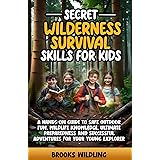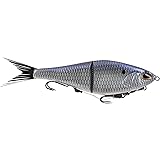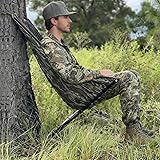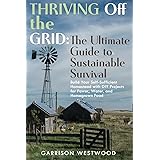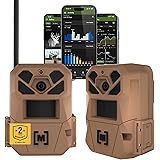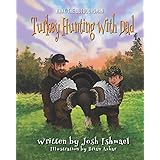Exploring the outdoors offers immense joy. The video above shows a sweet moment. A mother and child share simple outdoor time. It reminds us of nature’s appeal. Yet, adventures require preparation. Understanding basic survival skills is crucial. This is true for everyone. It is especially vital for parents. Equipping yourself brings peace of mind. It ensures safety for your family. Imagine if an unexpected situation arose. Knowing what to do makes a difference. Learning about outdoor survival is smart. It is a valuable investment in safety.
Understanding Basic Survival Skills
Basic survival skills are fundamental. They are not just for experts. Everyone benefits from knowing them. These skills help in unexpected situations. They turn fear into confidence. Safety is always the top priority. Good preparation prevents panic. It makes outdoor trips more enjoyable. You can focus on fun. Worry about emergencies is reduced. Learning these skills is empowering. It connects you more deeply with nature.
Essential Outdoor Survival Gear for Beginners
Packing the right gear is important. It is your first line of defense. The “Ten Essentials” is a popular list. These items cover many needs. Pack smart and efficiently. Consider everyone’s requirements. Children might need specific items. Extra layers are always wise. Snacks and water are non-negotiable. A small backpack can carry much. Being prepared makes a difference.
Navigation Tools
- Maps are very vital.
- A compass helps find direction.
- Learn to use them together.
- GPS devices can assist greatly.
- Know how to read terrain.
- Stay aware of your surroundings.
Imagine if you lost the trail. Navigation skills prevent getting lost. They guide you back to safety. Practice using these tools beforehand. Familiarity builds confidence. It ensures a safer journey.
Shelter Essentials
Protection from the elements is key. An emergency blanket provides warmth. It reflects body heat. A lightweight tarp is versatile. It can be set up quickly. Small tents also offer shelter. These items protect from rain. They keep you safe from wind. Staying dry prevents hypothermia. Always pack a form of shelter.
Fire Starting Kits
Fire provides essential warmth. It helps purify water. Fire signals can attract help. Waterproof matches are excellent. Lighters are also very useful. Fire starters like ferro rods work well. Dry tinder is important. Small kindling helps build flames. Always have multiple ways to start a fire. It is a critical survival skill.
Water Purification Methods
Staying hydrated matters most. Dehydration is a serious risk. Water filters remove contaminants. Purification tablets are lightweight. Boiling water effectively kills germs. Always treat water from natural sources. Never drink untreated water. Carry enough water for your trip. Know how to resupply safely. A life straw can be very useful.
First Aid Supplies
Minor injuries are common outdoors. A basic first aid kit is a must. It should contain bandages. Antiseptic wipes are important. Pain relievers help with discomfort. Tweezers can remove splinters. Know how to use each item. Attend a basic first aid course. It could save a life in an emergency. Being prepared for injuries is wise.
Key Bushcraft Techniques for the Forest
Bushcraft involves living off the land. It uses natural resources. Simple skills are perfect for beginners. Bushcraft enhances any outdoor trip. It builds self-reliance. It deepens your connection to nature. These techniques are practical. They improve your outdoor competency. Start with basic bushcraft skills.
Building a Simple Emergency Shelter
A lean-to shelter protects well. It uses natural materials. Branches and leaves create cover. Find a sturdy support tree. Angle branches against it. Layer leaves for insulation. Practice building one at home. Knowing how to build a shelter provides security. It keeps you warm and dry. This skill is incredibly valuable.
Foraging Basics (Safety First!)
Identifying edible plants can be useful. Never eat unknown berries or mushrooms. Misidentification can be dangerous. Focus on clear identifications. Carry a reliable field guide. Learn about local flora. Foraging should be approached with extreme caution. It is a skill best learned from experts. Focus on safety always.
Safe Fire Management
Choose a safe spot for your fire. Clear all dry leaves and debris. Create a fire ring of stones. Keep water nearby for emergencies. Never leave a fire unattended. Always put it out completely. Douse with water until cool. Stir ashes to check for embers. Forest fires are easily started. Being responsible is essential.
Staying Safe with Kids in the Wilderness
Children require special outdoor attention. Teach them simple wilderness rules. Always supervise them very closely. Young children can wander easily. Establish boundaries before you start. Make safety a fun learning experience. Their safety is your responsibility. Preparedness protects young adventurers.
Teaching Basic Outdoor Safety
- Stay together on trails.
- Never wander off alone.
- Call out for “help” if lost.
- Do not approach wild animals.
- Do not eat unknown plants.
- Carry a whistle for emergencies.
Teach them about trail markers. Explain the importance of gear. Make them part of the planning. This builds their confidence. It also teaches responsibility. Outdoor safety is a shared effort.
What to Do If Someone Gets Lost
The “STOP” strategy is very helpful. S-T-O-P stands for Stop, Think, Observe, Plan. Stay in one place. Think about your last known location. Observe your surroundings carefully. Plan your next moves calmly. Signal for rescuers loudly. Stay together as a group. A lost child should hug a tree. This makes them easier to find.
Dealing with Wildlife Encounters
Respect wildlife and their space. Make noise while hiking. This avoids surprising animals. Keep food stored securely. Never feed wild animals. Know what to do for specific creatures. Bears require specific actions. Always research local wildlife. Being informed keeps everyone safe. It prevents dangerous encounters.
Practical Tips for Your Next Outdoor Adventure
Preparation makes trips much better. Plan your route carefully. Check weather forecasts thoroughly. Inform someone of your itinerary. Pack according to the conditions. Enjoy the forest safely and responsibly. Keep learning new survival skills. Each trip offers new lessons. Embrace the challenges. Cherish the natural world. Outdoor survival knowledge is power.
Forest Hacks Q&A: Survival Wisdom for Single Moms
What are basic survival skills?
Basic survival skills are fundamental knowledge that helps you stay safe and confident in unexpected outdoor situations, rather than panicking.
Why should I learn outdoor survival skills?
Learning outdoor survival skills is important because it brings peace of mind, ensures safety for your family, and makes outdoor trips more enjoyable by preparing you for unexpected situations.
What essential gear do I need for outdoor survival?
Essential outdoor survival gear includes navigation tools like maps, shelter items, fire starting kits, water purification methods, and a basic first aid kit, often called the ‘Ten Essentials’.
How can I keep kids safe in the wilderness?
To keep kids safe, always supervise them closely, teach them basic rules like staying on trails and not wandering off, and explain the ‘STOP’ strategy if they get lost.


